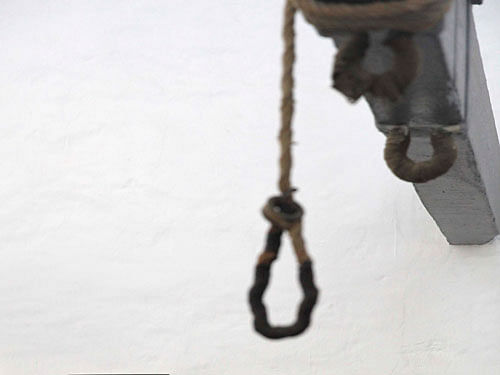
A fugitive commander of the notorious Razakar Bahini, an auxiliary force of the Pakistani troops, was today sentenced to death by a Bangladeshi court for massacre and torture particularly of Hindus during the country's 1971 liberation war.
Syed Mohammad Hasan Ali, 68, was found guilty on five charges out of six and Justice M Enaytur Rahim, chairman of the three-member panel of International Crimes Tribunal-1, handed down the death sentence to him.
The verdict said that the "death be executed by hanging the accused by the neck till he is dead or by shooting him till he is dead".
"The government will decide on his manner of execution," the judge said in a rare directive while handing down death penalties.
Justice Rahim said since Ali was absconding the sentence "shall be executed after his arrest or when he surrenders before the tribunal, whichever is earlier."
Ali, a commander of the notorious Razakar Bahini which was formed as an auxiliary force to the Pakistani troops, was defended by a state appointed lawyer during the trial.
Under the law, Ali can challenge the verdict in the Appellate Division of the Supreme Court after surrendering before the tribunal.
The tribunal said five out of the six charges like massacre, murders, torture particularly of Hindus and arson, against Ali were "proved beyond doubt" and he was awarded the capital punishment for two of the charges.
Ali, who hails from northeastern Kishorganj district, is the fifth person to be convicted of war crimes in absentia since the trials started in 2010.
According to witnesses, Ali's notoriety in Tarhail area of the district in 1971 earned him the title of 'Razakar Daroga' (Razakar police officer).
He is believed to have fled the country as the trial process was initiated but 26 witnesses testified against Ali during the trial.
This was the 19th verdict delivered by the country's two war crimes tribunals since Bangladesh initiated the trials of suspected war criminals in 2010. In the previous 18 cases, the tribunals tried 18 people and handed down death penalty to 13.
However, in the appeal process against the verdicts, the Supreme Court enhanced the life imprisonment of one of the convicts –- Jamaat leader Abdul Quader Mollah -- to death penalty, finding the tribunal verdict too lenient.
In another case, the apex court reduced the death sentence of another Jamaat stalwart Delwar Hossain Sayeedi ordering him to be imprisoned until his death.
The rest of the tribunal judgements now also await hearing in the apex court for review as appeals by convicts have been filed. Authorities have so far executed death penalties of two Jamaat leaders -– Mollah and Muhammad Quamaruzzaman.